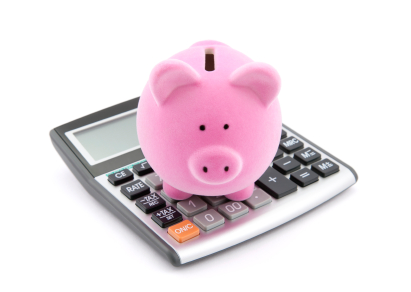You’ve decided to buy your very first home in 2017. You’re about to start looking for houses on the market. Let’s review your decision to ensure that you’re in fact ready for this step.[……]
Tag Archives: savings
Here’s a strategy to maximize your savings that requires minimal effort over a two- to three-year cycle.
Sophie Sylvain recommends using the savi[……]
Five fun ways to help your preschooler learn about money.
[caption id="attachment_12860" align="aligncenter" width="580"] iStockphoto[/caption]
iStockphoto[/caption]
It’s never too early to help them make sense of money.
If your kids can count, they can start learning about money. At this young age, a great way to teach them is through multisensory experiences that include lots of play, songs, and arts and crafts. Here are five fun ways you can engage your little one in lessons about dollars and cents:[……]
Start preparing a safety net for unexpected expenses.
Life happens.
Your washing machine breaks. You have a leaky roof. You lose your job. Your child gets sick.
No matter how well you plan, you simply can’t predict if and when unexpected expenses are going to arise — and inevitably they will. Your pay cheque may only go so far towards covering costs, and you’ll want to avoid going into debt or dipping into your retirement or long-term savings.
So what can you do to prepare?
Start saving now.
Open a separate savings account for emergencies, and get into the habit of depositing a weekly or monthly amount, even if it’s just $10 or $15. That may mean one less meal out, but it will add up over time. A great way to get started is to set up automatic savings. Once you’re in the habit of automatically setting money aside each month and adjusting your spending habits, you can gradually increase the amount.[……]
There are some projects, such as buying a house, that cannot be turned into reality over night. In addition to having to consider a number of factors, you must also be able to save sufficiently, all the while ensuring that the financial repercussions do not affect your lifestyle.
Whether you’re dreaming of a trip around the world, purchasing a new car, retiring under the sun, or acquiring a second home, your project must begin with a plan!
Advice… from the comfort of your home
Financially, it’s always wiser to save sufficiently to avoid having to rely on financing to accomplish your life projects. However, there’s no denying that in some instances, such as buying a home, it is quite difficult – and often, impossible – to save all that you need to pay it all in cash.
This however doesn’t mean that saving is futile. By saving as much as possible, you thereby minimize both your future monthly payments and the interest that accumulates on your loan. In turn, this will free up some considerable room in your budget.
But how and how much should you save? [……]
 iStockphoto LP[/caption]
iStockphoto LP[/caption]
Can a house really generate savings? We hear so many owners complain about all the money they can pump into a house that you might end up thinking that a house is a bottomless pit when it comes to your budget. The real pessimistic owners complain about always having to pay and pay.
Two writers offer various ways to reduce our household bills. They have opposite approaches. The first one opts for classic savings; the second one takes the road less traveled.
A reporter for the business pages of La Presse newspaper, Stéphanie Grammond offers her advice in her paperback Acheter sans se faire rouler. In terms of insurance, she invites owners to use common sense. You can save a lot over the years by doing certain renovations, getting an alarm system, not making insurance claims for every little thing and having a deductible higher than $300.[……]
 Source: iStockphoto LP[/caption]
Source: iStockphoto LP[/caption]
For three years now journalists and economists have been warning us: “Watch out, interest rates are going to go up!” And then the rates stay down. Because they keep crying wolf, we don’t listen anymore—and that’s where the danger lies. One fine day, the rates are going to start rising and for some of us, it’ll be too late.
That’s the message from the Financial Consumer Agency of Canada (FCAC).
“While interest rates are now at all-time lows in Canada, it is likely that they will rise sometime in the future. Canadians need to look at how much debt they are carrying, particularly in the amount of their mortgages, home equity lines of credit, personal lines of credit and variable-rate personal loans,” says FCAC Commissioner Ursula Menke. “By doing a debt check-up, consumers can take a close look at their present debt burden and think about whether they would be able to handle it if their payments increase.”[……]



